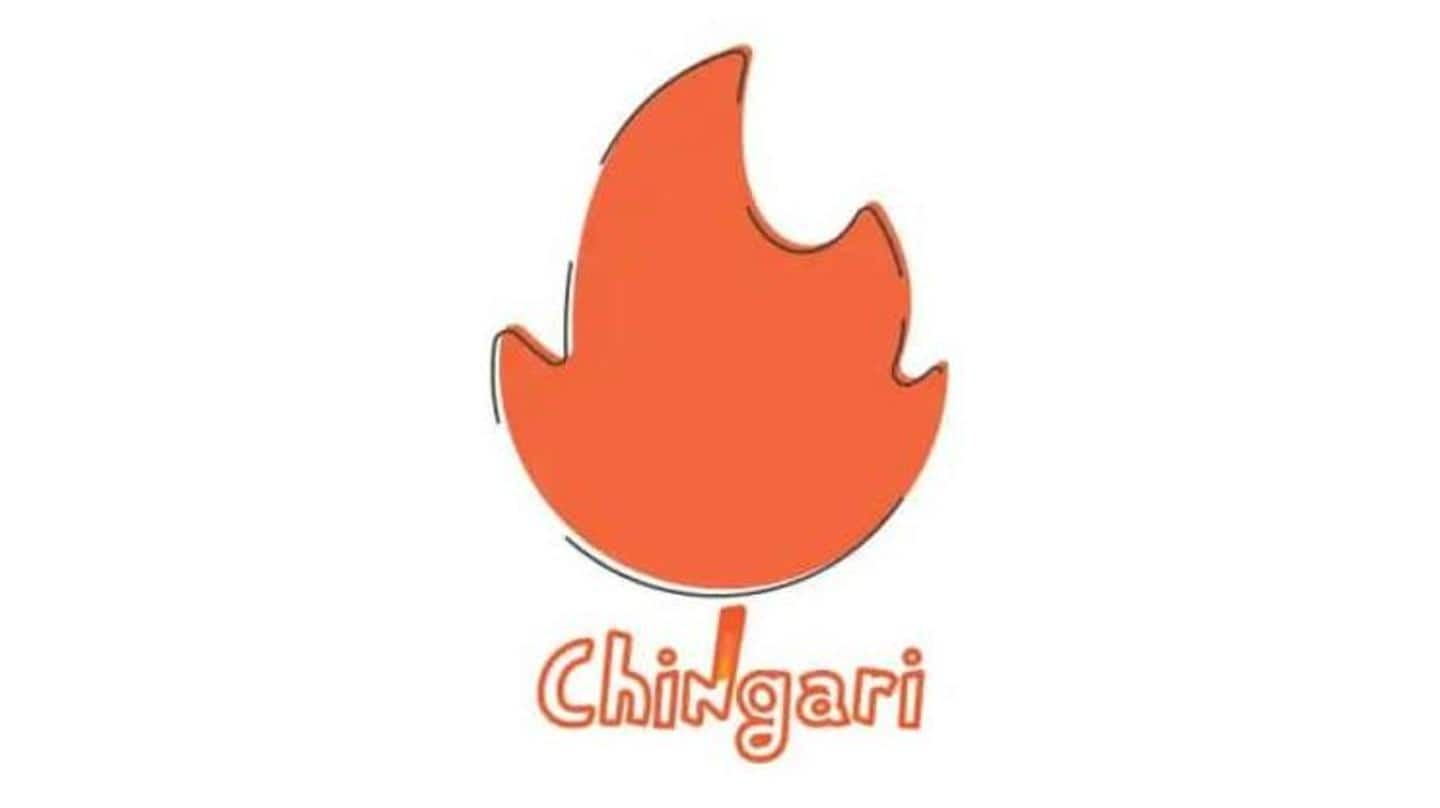
Meet Sumit Ghosh, co-founder of Chingari (India's answer to TikTok)
What's the story
The border tensions between India and China and the ensuing crackdown on 59 Chinese applications has surged 'vocal for local' calls. More and more people are backing indigenous products and boycotting those from other nations, especially China. Amid this shift, an application called 'Chingari' is rising as India's answer to China's insanely popular TikTok. Here's our conversation with Sumit Ghosh, Chingari's co-founder.
Story
Launched in 2018, rose to fame two years later
Chingari debuted as a short video app back in 2018 but gained traction in 2020 when TikTok, the ByteDance-owned leader in the category, began losing users over its inappropriate content and the escalating Indo-China situation. Then, over a week ago, TikTok was completely banned by the Indian government over security concerns, marking a major push for Chingari and its user base.
Origin
"We wanted to create a super app for Bharat"
Speaking about his product, Ghosh tells NewsBytes they started Chingari with the idea of creating a "super app" for Bharat, with a special focus on tier-2, tier-3 cities, small towns, and villages. "We are not suddenly trying to rope in the popularity of short video app...[and] had the strategy to do this for a long time; we built out the technology for two years."
Work
Could not compete with TikTok but followed them closely
As Musical.ly became TikTok after being acquired by ByteDance in 2017 and kept growing, Chingari, being a bootstrapped company, could not compete with them, Ghosh noted. However, he emphasized, they kept following TikTok's strategy- what they did and how they built out the company, and further enhanced the app with added content like news and games to gain more traction.
Quote
Games have now been removed
"Now we have decided to go away with the games and focus only on short videos and news. I think these are the two things Indians will consume most," Ghosh emphasized.
Shift
Notably, things started changing for them in May
Around May of this year, a video of Indian innovator Sonam Wangchuk went viral on YouTube, giving Ghosh the idea that he could highlight about Chingari being a "Made in India" product to boost its popularity. "I started an Instagram campaign promoting Chingari as an Indian app, and it went viral," Ghosh said. "Within 72 hours, we reached 5 lakh downloads."
Boost
Since then, there has been no looking back
As people flocked Chingari, its downloads kept increasing. By June-end, the app had momentum, media attention, and the backing of Anand Mahindra on Twitter. Then, TikTok was banned by the government and Chingari got a much larger push as India's own answer to the Chinese app. Now, Ghosh says, they are at 17-18 million downloads, raking 2 million downloads a day, organically.
Information
4-5 million short videos created within a week
"At the beginning of July, Chingari had 2 million creators who added 4-5 million videos in a week," Ghosh said while detailing the growth story of his product.
Differentiation
News is a differentiating element on Chingari
Along with viral videos, Ghosh notes, short video news also makes a unique part of Chingari. "We will give you personalized news bulletins in the form of short videos," he said, adding that "we're talking to several news creators so they will be able to create a channel and upload news videos; their followers will also get a notification whenever new content is uploaded."
Plan
Goal to be a platform company
"We want to be a platform company," Ghosh says, noting that they have already announced that Chingari will serve as a growth platform for Indie music composers whose content will be added into the app to be promoted/used by creators in their videos. This way, post monetization, these composers will also get a fair share of revenue with Chingari and its creators.
Security
All data safely stored on AWS servers
Speaking on the aspect of privacy, Ghosh said that the data of Chingari users is safely stored on Amazon Web Services servers located in Mumbai. He also said, "We have a very clear privacy policy, collect very minimal user data like your name, age, gender (for monetization) and don't mine anything we don't need or anything that could violate your privacy."
Funding
Plan to raise funding, but not from Chinese investors
Ghosh emphasized that their users' data is and will remain within the borders of India and they do not plan on raising funds from any Chinese investor or company in the future. However, to push their product forward and expand their team, they are in talks with some global VC firms and looking to finalize a Series-A round by the end of this month.
Steps
What lies ahead?
Given the room created by TikTok's departure, Chingari is planning to continue with its content platform strategy. The company intends to hire about 200 people in the coming months and has already started working on improving the app. Ghosh says some broken features of the app have been fixed and a new UX of the service will also be rolled out by this weekend.
Moderation
Content being moderated manually, but will be automated in future
Also, Chingari will be automating its content moderation techniques in the near future. "We have community guidelines in place, which, if violated, results in the removal of the content," Ghosh stated. He said 4-5 people are moderating the content at present but "we are also working on an ML algorithm" which will automatically identify and remove content violating their policies.
Key
Eventually, it all depends on execution
Speaking on the growing competition, Ghosh said anyone can build an app for short videos in three-four weeks but the key to success is in execution. "You need to get influencers, creators locked into the ecosystem, their followers into the ecosystem," he concludes, noting that "we have the right strategy and right team in place to execute this and make it a global business."